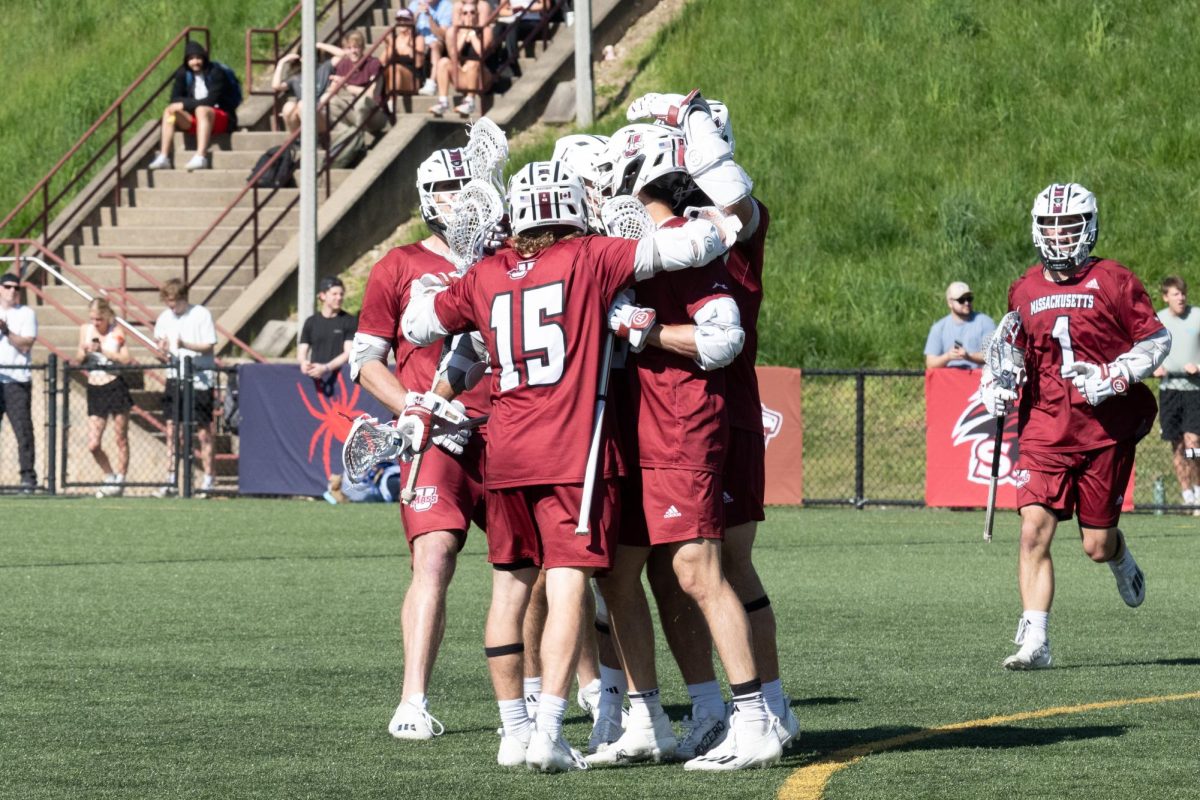Judy Shepard, mother of hate crime victim Matthew Shepard, told a near-capacity crowd at Amherst College Friday night that “you need to be the change” in stopping hate-based crime and speech and creating a society of tolerance.
Shepard’s appearance came as the keynote speaker for Amherst’s Gay Lesbian Bisexual Transgendered Alumni/Student Mentoring Weekend.
She began by reading the “Victim Impact Statement” which was prepared for the trial of Russell Henderson, one of her son’s killers. The statement, written to help the jury decide on appropriate sentencing, told the story of a young man full of hope and promise, tragically lost long before his time. Some audience members became tearful during its reading.
Shepard explained the inception of the Matthew Shepard Foundation, a group she founded using the huge outpouring of money her family received from the public to help pay for Matthew’s medical bills. It lobbies in Washington for hate crime legislation, as well as for public education on tolerance and inclusion.
“The reason I do this is I don’t want to see one more Matthew Shepard,” she told the audience. She stressed that her work becomes all the more necessary as the rate of hate-based crimes increases across the United States.
“America is moving in the right direction,” she said, “But change is a long and difficult process, and we are still a long ways from reaching our goal.”
Shepard then went on to instruct the audience in various ways they can help create a society of tolerance.
“If you hear someone telling a homophobic joke, you can’t just let it slide,” she said. “Step up to the plate, say something, tell people ‘this is not okay.'”
Shepard said that the social climate would improve if more people were aware how prevalent homosexuality is.
“People need to realize that this is not some secret, abnormal sub-section of society,” she said. “We all have neighbors, friends, and relatives who are gay. The problem is that gays and lesbians are seen as such second-class citizens in our society. If we ever want that to change, [members of the gay community] need to come out and be out, all day, every day.”
In a Collegian interview following the lecture, Shepard clarified that the primary concerns in doing this are safety and comfort level.
“If more people would transcend these fears, I think everyone would begin to understand there is nothing wrong or abnormal about this lifestyle,” she said. [The gay community] just need to start being visible.”
Shepard discussed her drive to eliminate all forms of hate, the importance of being involved in your community, and “The Laramie Project,” the ground-breaking play based on interviews with community members from Matthew Shepard’s hometown.
And she repeated nearly 10 times the importance of voting. “You have to vote. It is the only way to change things. If you aren’t a registered voter, you lose your right to complain.”
When asked about the importance of voting when it comes to hate crime legislation, Shepard said, “there is no chance of passing any hate-crime bill with the current Republican majority in the House and Senate. If you want to help, you need to vote for candidates who are supportive to this cause.”
After the lecture she fielded questions from the audience, most asking about all her experiences following her son’s murder. When she finally left the stage, the clearly moved audience gave a standing ovation that lasted for several minutes.
Matthew Shepard gained worldwide media attention in 1998 when, at the age of 21, he was killed by two men he met in a Wyoming bar. The senseless murder gained such notoriety because there was little motivation beyond the victim’s homosexuality. The case brought out worldwide support for the Shepard family and became a symbol of the prejudice and gross misconceptions held by many regarding the gay community.
His mother, described herself as a self-proclaimed “reluctant activist,” a woman who describes herself as shy and “not much of a public speaker.” Since the murder of her son, however, she has been one of the most outspoken and effective advocates for hate-crime legislation and increased tolerance for the gay community.
She was preceded on the stage by the Blue Stockings, an all-female a cappella group from Amherst College. They sang thought-provoking songs about tolerance and overcoming tragedy. A short film was also shown before Shepard’s speech addressing the heartbreak of hate crimes.
Elaine Brigham, coordinator of Amherst College campus GLBT group, was delighted with the event.
“This is the fifth year we have had a gay alumni mentoring weekend,” she said. “It has grown from five to ten students and alumni talking about their experiences in some obscure classroom on campus to what we have this weekend: over 50 alumni and hundreds of supporters, crowned by our first amazing keynote speaker. I couldn’t be more thrilled.”
Mrs. Shepard spent over an hour after the lecture giving autographs and hugs to a steady stream of well-wishers and supporters.
When asked if this was an unusually positive audience response, Mrs. Shepard said, “Everywhere I go, all the people I talk to are amazingly supportive. That’s what keeps me going.”






